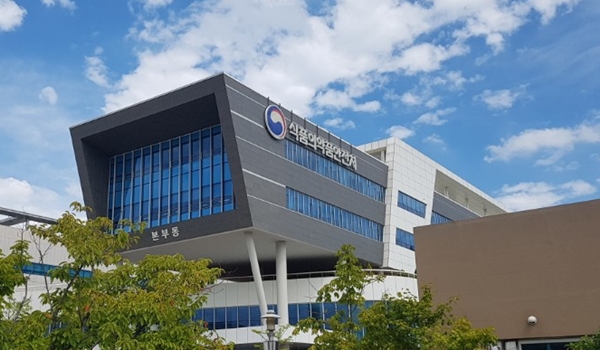Pro-choice groups and health experts have expressed split opinions on whether to conduct a bridging trial of Mifegymiso (ingredient: mifepristone/misoprostol), an abortion drug that will arrive in Korea soon.
A bridging trial aims to obtain clinical data for Koreans when it is difficult to apply foreign clinical trial results due to differences in ethnic factors.

According to industry sources, the Ministry of Food and Drug Safety (MFDS) held a meeting of the Central Pharmaceutical Affairs Council on Sept. 2 to review Hyundai Pharm’s application for marketing approval for Mifegymiso.
Hyundai Pharm had applied for the permit in July.
The Joint Action for Reproductive Justice (JARJ) attended the drug approval review meeting as a reference witness. JARJ argued that as Mifegymiso’s safety and efficacy have already been proved sufficiently, the MFDS should waiver a bridging study and grant the nod for the abortion drug swiftly to guarantee women’s safe abortion.
The group cited two reasons for the waiver of a bridging study. Misoprostol, one of the ingredients of Mifegymiso, is already authorized as a gastric ulcer treatment in Korea, and it poses almost no risk in efficacy and safety, it said. Also, the other ingredient, mifepristone won approval in Asian countries, including China, Taiwan, Vietnam, and Mongolia, which can offset the necessity of a bridging study in Korea, the group said.
JARJ also noted that the authorities caught 2,365 illegal advertisements for the sale of unauthorized abortion drugs in 2019. Such absence of authorized abortion medicines left Korean women unsafe, the group added.
“A bridging study is a tool to review ethnic factors, not national factors,” said Lee Dong-geun, Secretary-General of the Association of Pharmacists for Healthy Society (APHS). Lee is also an executive member of JARJ. “Excessively demanding a bridging study could be a waste of resources, and it could further delay access to an abortion drug that has been delayed for more than 30 years.”
Lee noted that mifepristone was recognized as a safe drug by the WHO, described in the textbook, and it has been used in Asia for a long time. Raising concerns about the drug’s effect on Koreans only was too excessive, he said.
“Just like the regulator exempts a bridging study for orphan drugs and anticancer drugs, it should waiver a bridging trial for Mifegymiso considering that there is no other medicine that can induce medical abortion,” Lee said.
In contrast, the Korean College of Obstetrics & Gynecology said a bridging trial for Mifegymiso is necessary because it is part of introducing a medicine in Korea.
A bridging study is generally conducted for approval of imported drugs. It is possible to apply for a local permit only with bridging clinical data without an additional clinical trial, KCOG said.
“We sternly warn that attempts to ignore such process could endanger people’s right to health,” it said.
Rebuffing the argument that an abortion drug is needed to curb illegal distributions of abortion drugs, KCOG said the government should enforce the law strictly to protect people’s safety first.
In Korea, many women suffer from adverse reactions after using abortion drugs illegally. Thus, the government should conduct a fact-finding investigation to identify the risks before introducing Mifegymiso, KCOG said. Also, the government should draw up measures to prevent misuse of abortion drugs and illicit trading that could also occur even after Mifegymiso gets approval, it added.
The Constitutional Court of Korea ruled in 2019 that criminalizing abortion in Korea was unconstitutional and ordered lawmakers to revise the law by the end of 2020.
However, the government and the National Assembly have been negligent about it, KCOG said. “Rather than rushing to introduce a risky medicine, the government and the parliament should expedite the revision of the law,” it said.

